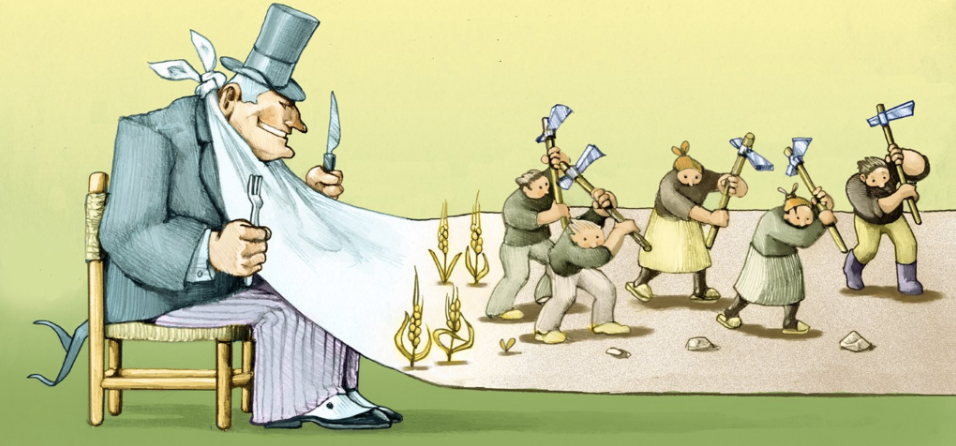|
By: P. Rodrigues Ideology Before we can move on to the widespread theme of Capitalism, it is important to understand what an ideology is. For most, it is described as a way of thinking, or a way of living life itself; however, the modern dictionary states that an ideology is: "a system of ideas and ideals, especially one that forms the basis of economic or political theory and policy.". It just happens that Capitalism is another ideology. One that currently dominates the way in which people think and act, on our economy and political systems. It has become unique and controversial topic throughout the entire globe. The History of Capitalism Many different people, each one with distinct backgrounds and real experiences with this topic, have clashing perspectives in their analysis of capitalism. Which transforms this argument into a very personal and delicate one. The most famous, and widely-accepted perspectives are: "laissez-faire or free market capitalism, welfare capitalism and state capitalism." Throughout our entire history as human beings, we exchanged services and goods. For the most part, the only way of getting more of something else, was to give some of what you already had. Like exchanging bread for rice. With time, this method of trade became inefficient and very unreliable. Capital, or money, was developed, together with currency, to resolve this problem. The idea was to create a universal and widely-accepted method of trade. Although the history of how money got to become paper is interesting, it doesn't have too much purpose when talking about capitalism; so, we'll skip this. With the invention of money, relationship between labour and wage became a 'thing'. Opening the doors for capitalism as we know it today. In simple terms, capitalism is a method of increasing efficiency and profit without regards for ethical concerns. This raw statement, is the core in which capitalism works; although it seems negative, it's truly what the aforementioned perspectives have as their essence. Casual Capitalism (laissez-faire) Casual capitalism is based on what Adam Smith said. Adam Smith was a philosopher and assumed the presence of perfect competition. The idea is that the state should be minimal, as long as the economic matters are concerned. In theory, the presence of competition would lead to a better and stronger market. As a consequence of new inventions and better products, competition would always adjust price and make better stuff to make the market use their products. Monopoly Capitalism This perspective states that Casual Capitalism does not work anymore because perfect competition is provided by imperfect competition. As some organization gets richer, consequently, more powerful, it starts to dominate the market and reduce the 'fairness'. This means that, nowadays, the market is restricted, making the need of new economic systems and safeguards. Advantages Advantages include, but are not limited to:
Disadvantages Disadvantages include, but are not limited to:
0 Comments
Leave a Reply. |
Categories
All
Archives
June 2024
|

